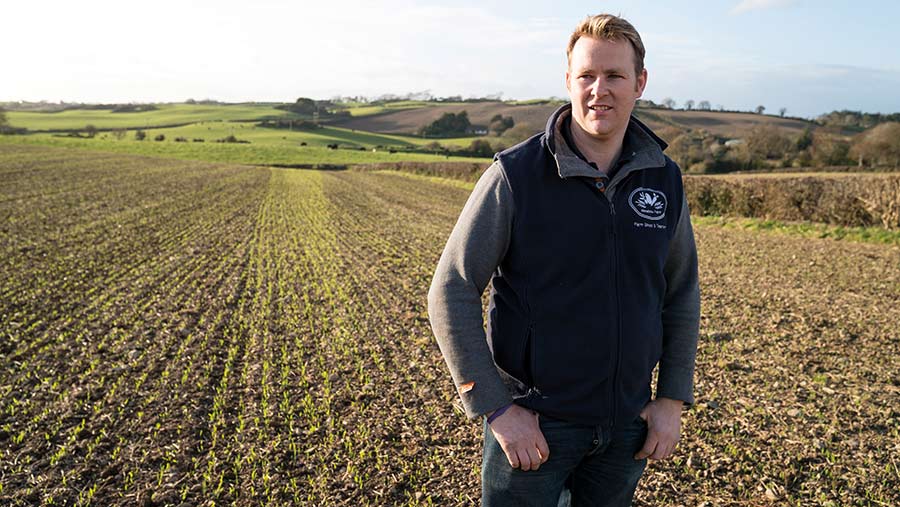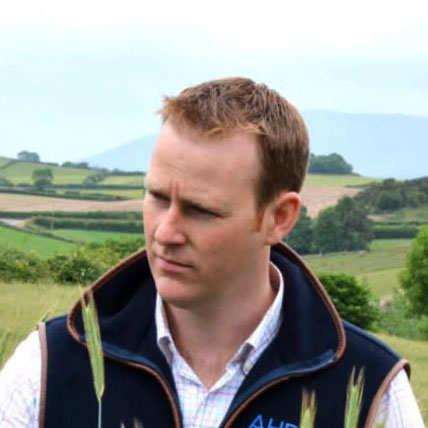Farmer Focus: Being a Monitor Farm has grown me as a farmer
 © Steffan Hill
© Steffan Hill The past four years have flown, for many reasons, but this month saw me host my final AHDB Monitor Farm meeting.
It was a perfect day, weather-wise, and I hope the 45 or so people who turned up enjoyed their day and took something away with them.
Without all the excellent farmers turning up to debate each subject, it wouldn’t have been half the success.
See also: Hamps and Hereford growers named 2022 Soil Farmers of the Year
The programme has been excellent for my own development as a person, as a farmer, public speaker and student – the wealth of knowledge available from AHDB staff, and the knowledge shared between farmers, is excellent.
Farmers are visual people. We like to see it on farm, not study it from a book, and these meetings make that happen. Every day is a school day.
Good luck to Alistair Craig, who takes up the mantle of monitor farmer for the next three years.
On the farm, crops continue to look excellent. Spring wheat has done particularly well and is looking lush and green.
The showers and wind have turned the winter barley very quickly and it will definitely be an early start to harvest.
However, it’s clear that I sprayed out the oats too soon and when the rain came in the second half of April more germinated, so the barley is rather frustrating to look at now.
Hopefully, wheat will hold on OK, though, and is currently getting its T3s along with foliar K to see it through. The best thing we could get in this area is a good night’s rain.
It’s clear that chemicals, fertiliser and technology have all made farming easier over the past 30 years, but often to the detriment of the soil.
However, I don’t feel you can blame any particular practice – ploughing, for example. It’s all down to the farmer factor.
If a farmer uses the chemicals and technology available correctly and with precision, pays attention to his soil and crops, there isn’t necessarily a wrong way.
It’s management across the whole rotation, and every decision made in that process has a knock-on effect, but that means being flexible and willing to change.
The whole rotation can suffer when crops are planted on a certain date, regardless of the conditions or circumstances at planting.


